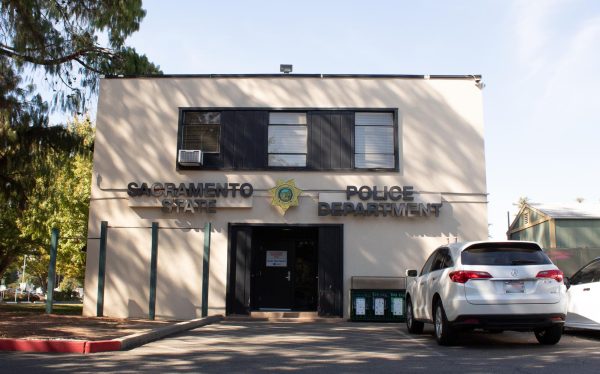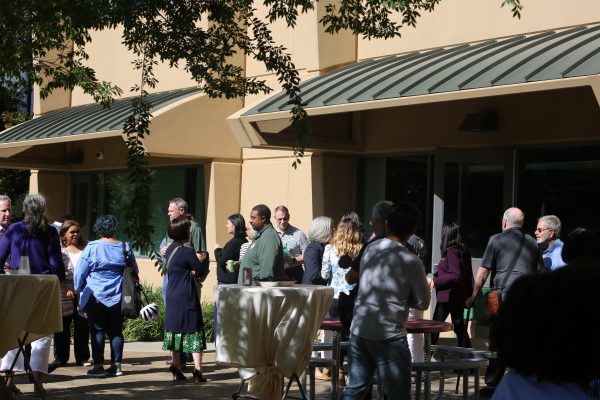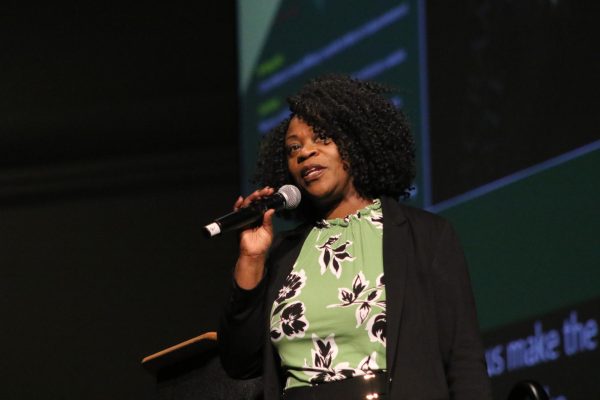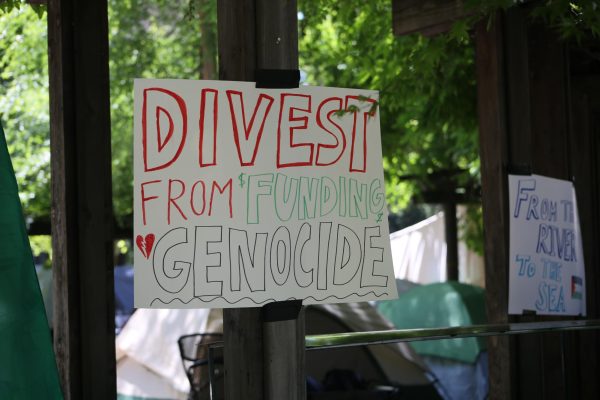Teacher: Enough damage done
February 7, 2007
This article has been updated from a previous version that contained erroneous information.
Government Professor Chris Witko is disgusted.
“After the treatment I have received here, they could triple my salary and I would not stay,” said Witko. He is leaving the California State University system after this semester because of the way the administration has proceeded as contract talks between the faculty and the CSU system continues.
Witko is leaving for a school in St. Louis at the end of the semester, and he said that previous attempts to get all faculty on the same pay scale failed.
“I have received one pay raise in the four years that I have been here, and the end came for me when a bunch of us filed equity payment adjustments that would have fixed inequities between existing faculty and newly hired faculty.” Witko said.
Witko added that during the equity payment process, the faculty were told by President Alexander Gonzalez that this would fix the problem of pay equity, but 87 of the 107 appeals were denied.
Still, some faculty members believe possible rolling strikes are within reason, even though they have not reached that point yet as the negotiation process continues.
Assistant professor of philosophy Matt McCormick said that talks of strikes are not going too far, nor is any other job action out of line if it grabs the attention of administration.
“If we don’t, Chancellor Reed and the Board of Trustees have demonstrated that they will exploit us as much as they can,” McCormick said an e-mail.
“The CSU is going to continue to have trouble attracting and keeping highly qualified faculty unless the administration can improve faculty morale, help improve faculty governance and help us to get a fair contract,” McCormick said.
Lila Jacobs, Sac State professor in the College of Education, said that she sees the momentum shifting to the CFA’s favor.
“We have been receiving more and more support from local politicians such as Assemblyman Anthony Portino. We also believe that the fact-finding panel will say that the facts are on the side of the CFA, but we expect that the Chancellor’s office will reject the proposals that are recommended by the fact-finding committee,” Jacobs said.
Paul Browning, media relations specialist for the Chancellor’s office, said the negotiations are at an impasse, and the next step is to form a fact-finding committee.
“The fact-finding process involves a hearing by a panel of three fact-finders: one neutral representative appointed by the parties, and one representative each from the California Faculty Association and California State University,” Browning said.
Jacobs said the CFA hopes that the fact-finding process will bring a resolution, but that she expects the Chancellor’s office to reject the findings of the panel.
Browning also said this process should be completed by mid-March, and it will outline possible solutions on the bargaining issues. At this time, the CSU can either accept the recommendations from this panel, or they can unilaterally implement the last best offer including a salary increase for faculty without an agreement with the CFA.
Jacobs said that the sticking points in the bargaining process come down to several key issues, such as equitable raise in faculty pay, and also faculty load, in terms of the number of classes.
Browning said the offer rejected by the CFA included an increase on the faculty pay over the next three years by 27 percent, and an increase to 100 percent payment by the CSU of medical insurance premiums over the life of the contract.
“The CSU’s offer is the maximum it can offer the faculty with the budget that’s available, and it is a great offer,” Browning said.
Associated Student’s Inc. President Jesus Andrade said the faculty has the right to go on strike, but that he is hopeful an agreement can be reached.
“The faculty deserves to get justly compensated for their work, and we don’t want to lose faculty,” Andrade said.
Andrade said at the Feb. 7 meeting that Associated Student Inc. will come up with a plan if the faculty do strike.
Jacobs said students do not need to worry about a strike affecting things such as graduation.
Jason Conwell, a field representative for the CFA, said that the reason that there has not been a strike sooner is because the CFA is under law to continue to go through the negotiation process before they can strike.
“Under public sector law, which says that during negotiations, only after the completion of the fact-finding process. Only then can we vote to strike or not, but before that we are still held by the last contract,” Conwell said. Browning said that he had heard of the stories of teachers leaving the CSU system altogether, but that he believes these are just claims, and nothing more than that.
“We are working to get the faculty salary up to par so that they stay,” Browning said.
Philip Malan can be reached at [email protected]


































































































































